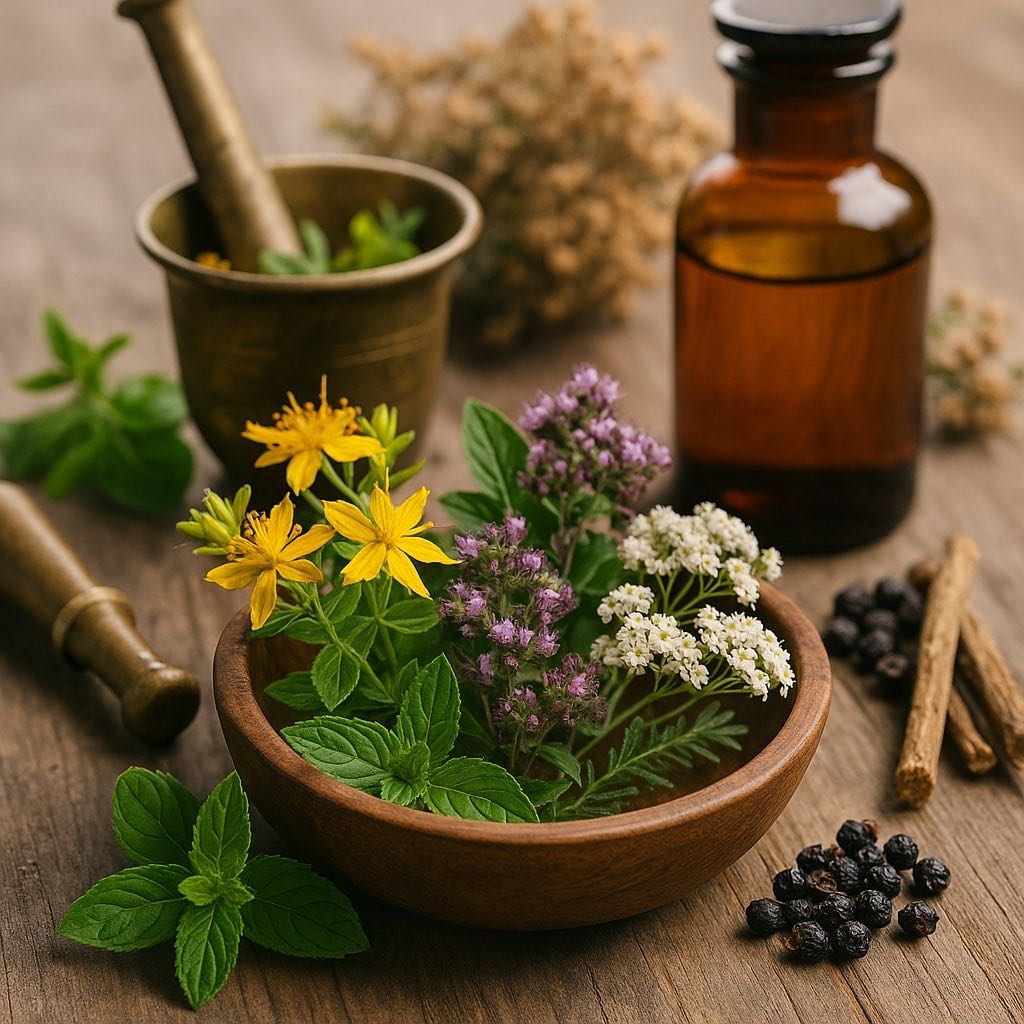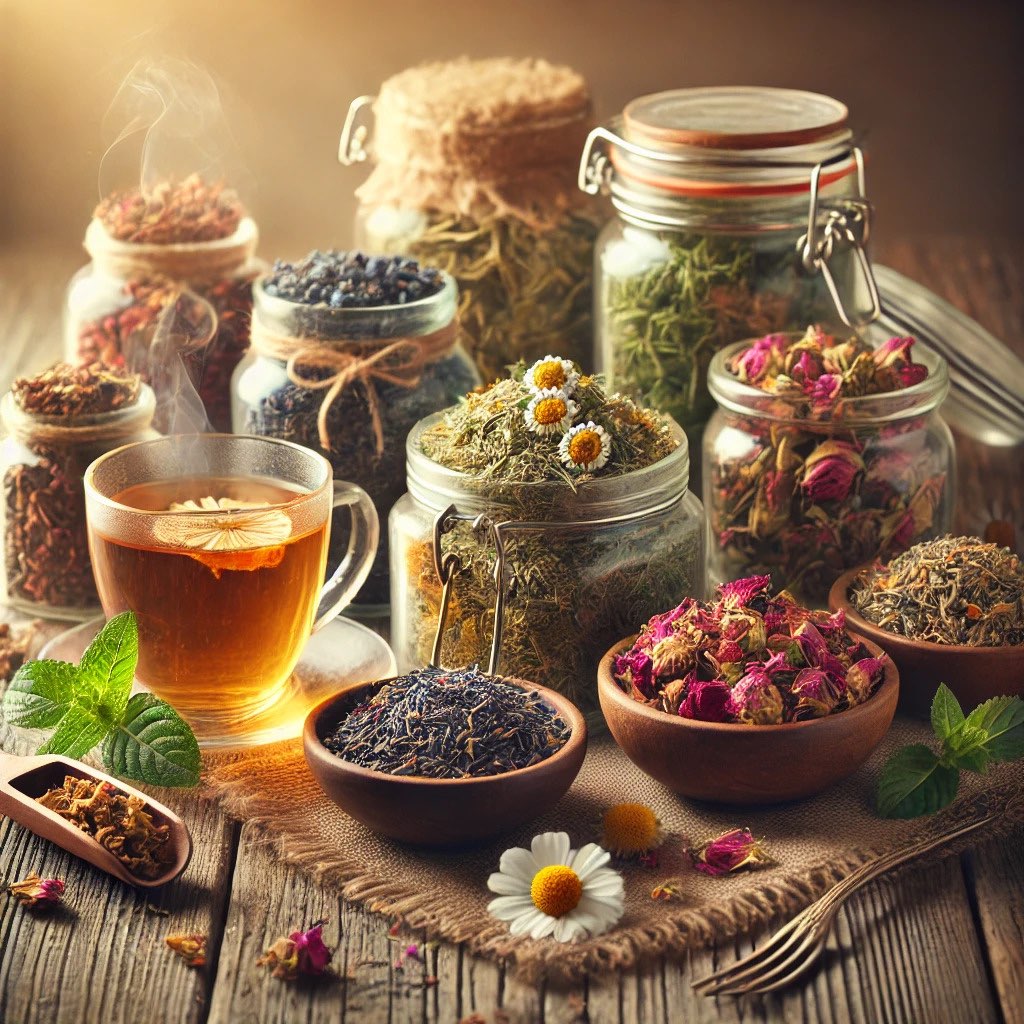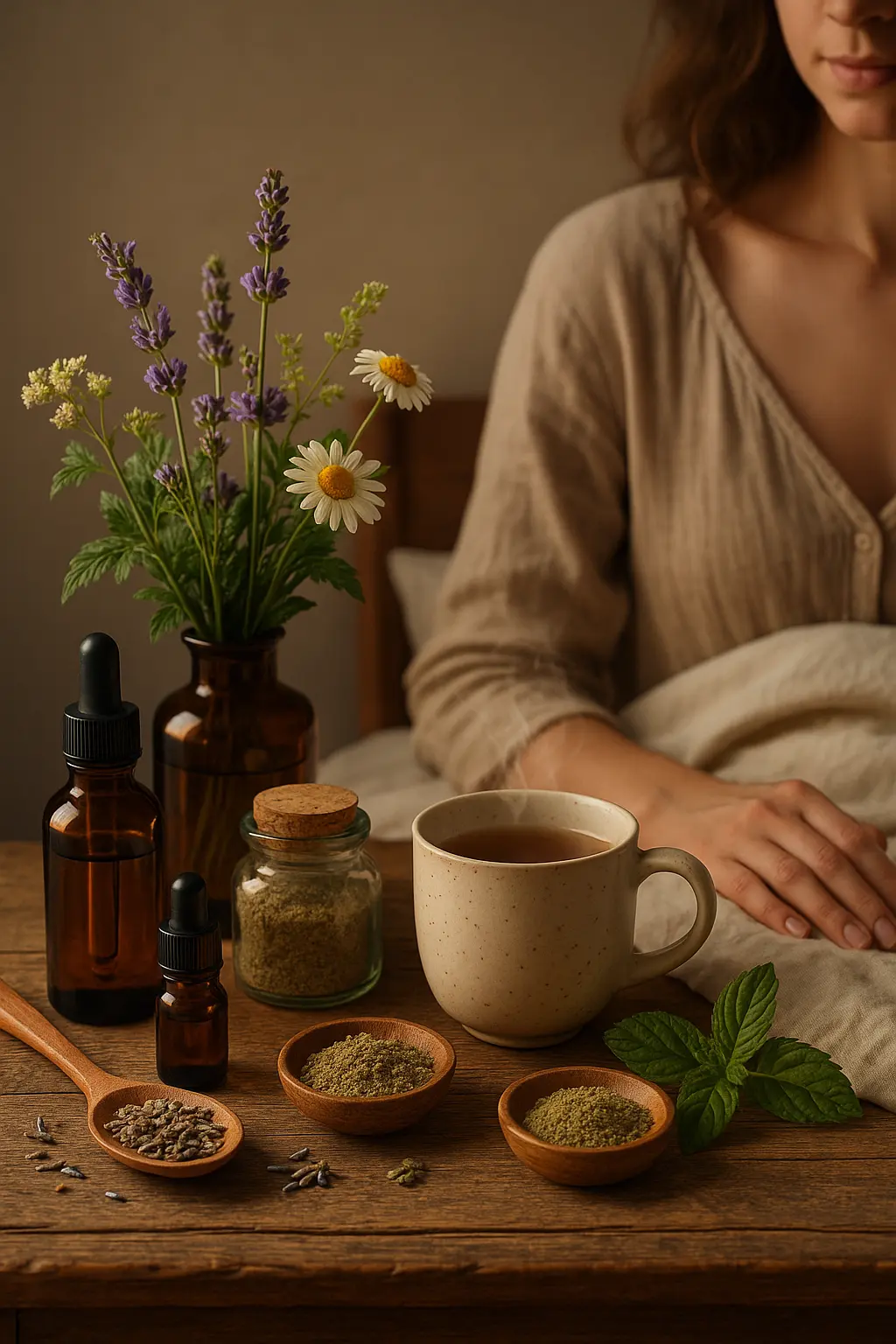At Mystic Minerals, we believe in the incredible healing power of herbs. Throughout history, cultures around the world have relied on these natural remedies to support health and well-being. Today, as more people seek alternatives to synthetic medications, herbal medicine has experienced a revival. However, for those new to herbs, the journey can feel a bit overwhelming. This guide offers a simple introduction to understanding the medicinal properties of herbs and how to integrate them into your life with confidence.
What Are Medicinal Herbs?

Medicinal herbs are plants containing natural compounds that promote healing. Synthetic drugs target specific symptoms, herbs work holistically, supporting the body’s natural processes. From treating common colds to managing chronic conditions, these plants offer a range of therapeutic benefits.
You can use herbs in many forms – such as teas, tinctures, capsules, or topical creams – and each offers specific benefits. Choosing the right preparation and understanding when to use it will help you get the most out of herbal remedies
Key Components of Medicinal Herbs
To fully appreciate the power of herbs, it helps to understand the active compounds responsible for their healing properties:
- Alkaloids: These potent plant compounds provide powerful effects. For example, berberine, found in goldenseal, offers strong antimicrobial properties.
- Flavonoids: Acting as antioxidants, flavonoids protect your cells from damage. Herbs like chamomile and hawthorn contain these compounds, which can reduce inflammation and support cardiovascular health.
- Tannins: Known for their astringent properties, tannins help tighten tissues and soothe inflammation. Witch hazel, often used in skincare, is packed with tannins.
- Volatile Oils: These aromatic oils, found in herbs like peppermint and eucalyptus, work well for respiratory issues and digestive discomfort.
- Saponins: With immune-boosting properties, saponins appear in herbs like astragalus and ginseng, helping to reduce inflammation and enhance immunity.
Common Medicinal Herbs and Their Uses
- Echinacea: This herb supports immune function and helps prevent and treat colds. By stimulating white blood cell production, echinacea enhances the body’s ability to fight infections.
- Ginger: Known for its anti-inflammatory and digestive properties, ginger relieves nausea, eases muscle pain, and improves digestion.
- Chamomile: Famous for its calming effects, chamomile promotes relaxation, improves sleep, and soothes digestive issues. Its anti-inflammatory benefits also make it helpful for skincare.
- Turmeric: With curcumin as its key compound, turmeric is widely used to reduce inflammation and pain. It also promotes liver health and digestion.
- Peppermint: Ideal for digestive relief, peppermint helps alleviate bloating, indigestion, and tension headaches thanks to its cooling properties.
How to Use Medicinal Herbs

There are several ways to use herbs effectively. Choose the method that best suits your lifestyle and the condition you’re addressing:
- Herbal Teas: Simply steep herbs in hot water for 5-10 minutes to enjoy their therapeutic benefits. This method works well with chamomile, peppermint, and ginger.
- Tinctures: Tinctures are concentrated extracts soaked in alcohol or glycerin. They offer a potent way to use herbs like echinacea, turmeric, and valerian.
- Capsules and Tablets: If you prefer a consistent dose, capsules provide a convenient way to take herbs like turmeric or garlic.
- Topical Applications: Some herbs work best externally. For example, calendula heals wounds, while arnicareduces bruising and muscle soreness.
- Essential Oils: Aromatherapy with essential oils provides another way to benefit from herbs. Use diluted peppermint or lavender oil in baths, massages, or diffusers.
Safety Tips for Beginners
Even though herbs are natural, they require mindful use. Here are some key safety considerations:
- Start Slow: Begin with one herb at a time to observe how your body responds.
- Research Dosages and Interactions: Always confirm proper dosages, especially if you take prescription medications, are pregnant, or nursing.
- Source Matters: Purchase herbs from reputable suppliers who prioritize quality. Organic and wild-crafted herbs are often the safest options.
- Use Potent Herbs with Caution: Herbs like St. John’s Wort or ephedra can cause strong reactions or interact with medications. Proceed with care or consult a professional.
- Listen to Your Body: Pay attention to how you feel. If you experience side effects, stop use and consult with a healthcare provider.
Conclusion
Exploring the world of medicinal herbs offers an incredible opportunity to connect with nature’s healing power. Understanding how these plants work, which herbs suit your needs, and how to use them safely will help you embrace the benefits of herbal medicine.
At Mystic Minerals, we believe herbal remedies are more than just treatments – they are part of a holistic journey toward wellness. Start small, experiment with different herbs, and enjoy the process of discovering what works best for you. With respect, curiosity, and mindfulness, herbs can become trusted allies on your path to well-being.
Explore more and shop our collection at MysticMineralsMarket.com!











